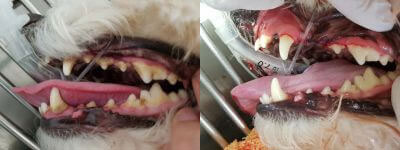Pet Care Information
Noticed something not quite right? Our team of highly trained Vets and nurses are skilled in diagnosing and treating problems to ensure your pet remains healthy. Consultations are by appointment, although emergencies will always be seen as a priority. Below is some basic pet care information to help you at home.
Common Household Pet Toxicities and Poisons
Products toxic to cats and dogs are in most households and gardens. The following are some of the most common toxic foodstuffs, human medications, poisons and plants that you may have at home.
Let’s keep the home safe for everyone!
To view a list of the most common household pet toxicities and poisons, please read our Common Household Pet Poisons or Toxins page, here.
Parasite Control
Fleas, intestinal worms, heartworm, mosquitoes… There are lots of little critters out there determined to make our pet’s lives miserable. Epsom Road Vet recommends that all pets be on a year round preventative parasite control program to maintain optimal health. We stock a wide range of products and our team can discuss the best products to suit your pet and circumstance. (eg. the once a year heartworm injection for dogs is great for those of us with forgetful memories!)
To read more about parasite control, view our Parasite Control page on our website.
Senior Health Programs
It happens to us all, pets included. Each birthday we turn another year older. Pets are considered to be ‘seniors’ over 7-8 years of age, and require careful monitoring to detect and treat issues before they become bigger problems. Our program for senior pets involves health and urine examinations every 6 months, and an annual blood screen to check for underlying conditions. Remember, animals are designed to mask illness and so by the time we detect something is amiss at home, things may be quite advanced. If problems are detected early, we can often act quickly to diagnose and treat problems and ensure your pet maintains the best pain free quality of life for the longest time possible.
More information can be found on our Senior Health Checks page.
Vaccinations
For information about vaccinations for your pet, take a read of our Pet Vaccinations page.
Microchipping
The best way to get re-united with your pet should they become lost is via a microchipping. A microchip is implanted beneath the skin near the shoulders. This is a quick one off procedure which can be done with your pet in a consultation. It is also a legal requirement by many local councils that all new cat and dog registrations are microchipped and registered with the council by 12 weeks of age.
Dentistry
If you’d like to learn about our Dentistry services at Epsom Road Vet, visit our Pet Dentistry page.
Home Dental Care
Dental disease is a very common condition in cats and dogs. Improved dental health and care has been shown to contribute to the longer lifespan of pet cats and dogs.
The stages of Dental disease
1) Food and bacteria form plaque on the teeth
2) Plaque mixes with saliva to harden and form tartar.
3) The tartar causes gingivitis (inflammation and infection of the gum), which causes the gums to recede from the teeth
4) The bone surrounding the tooth roots becomes affected (periodontal disease). When this occurs it is often necessary to extract diseased teeth.
Dental work in the clinic
Dental procedures in clinic including ultrasonic scaling and polishing under a general anaesthetic are often the first step to help manage dental disease.
We will often perform dental radiographs (X-rays) to identify potentially painful disease that cannot be seen below the gum line.

Before (grade 1-2 tartar) / After Dental scale and polish
Dental home care is very important
- Brushing: is the gold standard according to veterinary dentists. Brushing the teeth daily (ultimately with a pet toothpaste and brush (finger or brush)) will help remove food and plaque before it can progress to tartar. If this isn’t done frequently then it won’t be helping your furry friend very much (it takes 2-3 days for tartar to form)
- Dental diets (Hills T/D or Royal Canin Dental): These diets are designed so that the biscuit does not shatter, and the pet must chew the biscuit, mechanically cleaning the teeth. They also have additives that bind and reduce the formation of tartar
- Dental chews / toys: Greenies, Rawhide chews, Pigs Ears and chew toys can all encourage chewing
- “HealthyMouth”: Water additive that helps prevent the chemical reaction that produces tartar It works by interfering with the formation of the bacterial biofilm within the mouth that acts as the precursor to plaque. Simply dilute HealthyMouth into your pets bowl, each time you change the water. More information can be found at the HealthyMouth website.
- Oral gels (eg Maxiguard): Can be applied regularly to gums to slow tartar formation
- Plaqueoff: a powdered seaweed formula added daily to your pet’s food helps eliminate bad breath, plaque and tartar associated with dental disease.
- Raw bones: Chewing bones can be highly effective in maintaining dental health, as well as providing a source of environmental enrichment. Bone chewing carries potential risks of fractured teeth and potentially gastrointestinal obstruction, and we always recommend supervision initially to ensure your pet is approaching bones appropriately. Bone feeding is best used 2 – 3 times weekly. We do not recommend feeding large beef shank or long bones as these are often very hard and highly fatty. For large dogs chicken frames are excellent, while for small to medium dogs, lamb flaps (the rib bones) and chicken necks are ideal. For cats, raw chicken wings or chicken necks 1-2 x weekly can be useful. May be beneficial for some animals to prevent tartar formation. PLEASE NOTE – In February 2018 a study was released that shows a possible link between feeding raw chicken (especially chicken necks) and paralysis in dogs. While not common please consider this risk if choosing to feed your dog raw chicken)
Regular dental check ups and in some cases regular dental scaling and polishing are important to maintain oral care. If you are concerned about your pet’s dental health, please discuss this with one of our team.
Join Our Newsletter
Expert pet care advice, seasonal health alerts and special offers.
